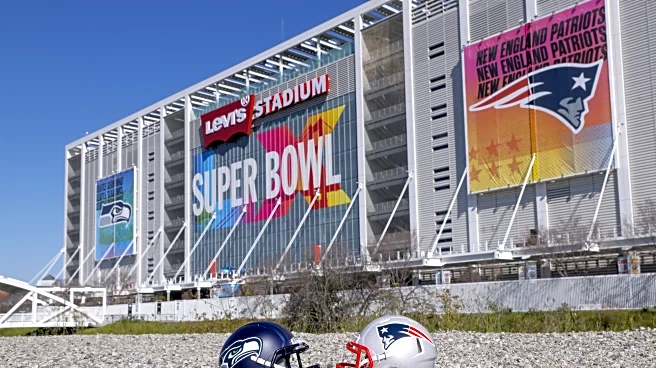What's Happening?
CBS's '60 Minutes' is under scrutiny for airing an edited version of an interview with President Trump. The interview, conducted by Norah O'Donnell at Mar-a-Lago, lasted over 70 minutes, but only about
30 minutes were broadcast. This has led to criticism from the White House and others on social media. The controversy follows a previous legal dispute between Trump and CBS over an interview with Kamala Harris, which Trump claimed was edited to favor Harris. CBS released the unedited transcript and video clips of that interview, asserting no wrongdoing. Despite this, CBS's parent company, Paramount, settled with Trump for $16 million. The full and edited versions of the recent Trump interview were posted online by CBS, and the White House also shared the full version on social media.
Why It's Important?
The editing of President Trump's interview raises questions about media practices and transparency, especially in politically charged contexts. The settlement between Trump and CBS over the previous interview with Kamala Harris highlights the potential financial and reputational risks media companies face when accused of bias. This incident underscores the challenges media outlets encounter in maintaining public trust, particularly when editing lengthy interviews for broadcast. The scrutiny could influence how media organizations handle similar situations in the future, potentially affecting their editorial processes and public relations strategies.
What's Next?
The ongoing scrutiny may prompt CBS and other media outlets to reassess their editing practices and transparency measures. There could be increased pressure for networks to provide full interview content online to mitigate accusations of bias. Additionally, the situation may lead to further legal or public relations challenges for CBS, especially if President Trump or his supporters continue to highlight perceived media biases. The incident may also influence how future interviews with political figures are conducted and presented.
Beyond the Headlines
This situation reflects broader issues of media trust and the impact of perceived bias on public opinion. The settlement with Trump and the subsequent scrutiny of the '60 Minutes' interview illustrate the delicate balance media companies must maintain between editorial discretion and public accountability. The case also highlights the influence of high-profile individuals in shaping media narratives and the potential consequences for journalistic integrity.









